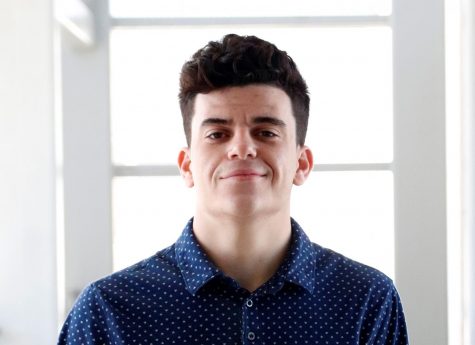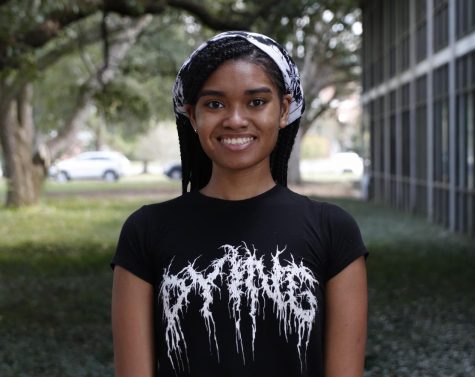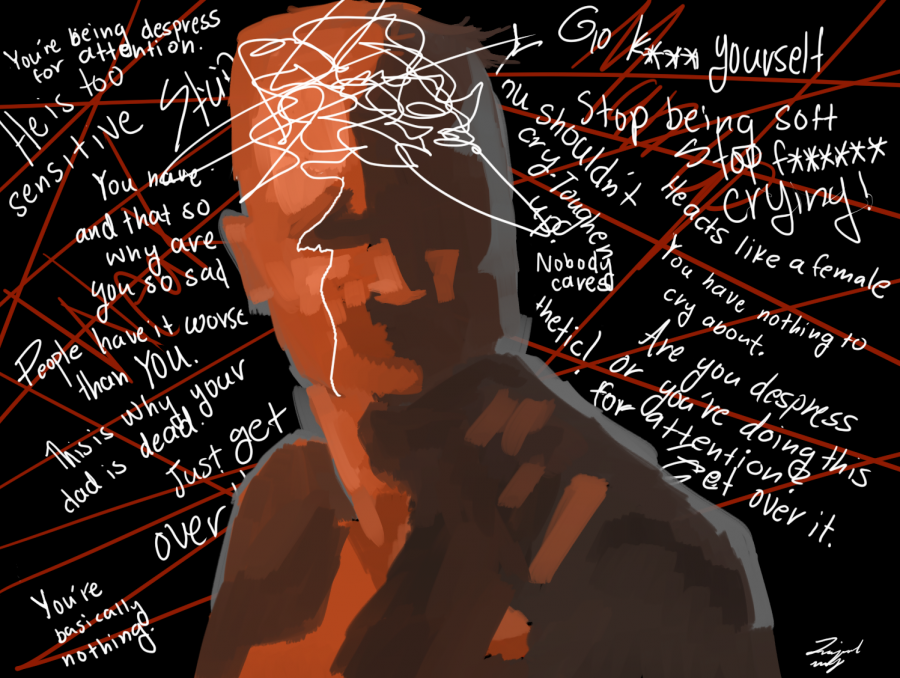It is time to start taking men’s mental health seriously
In an era where mental health problems are at an all-time high, it feels like men’s mental health is somehow still swept under the rug and not talked about like it should be.
Men’s mental health is slept on because of the macho stereotype portrayed in society. The “rub some dirt and shake it off” ideology is how men are supposed to operate and carry themselves.
This is how many people are raised, whether it be the men’s parents, guardians or their peers and friends in their youth. Men feel as if they are soft for speaking out about mental health.
In early September, Fox Sports analyst Skip Bayless criticized Dallas Cowboys starting quarterback Dak Prescott for publicly stating he had mental health issues due to his brother’s passing in early 2020. Bayless went on to state that “Dak is a leader of America’s team and shouldn’t be public about his mental health.” This led to a wide outcry in the media about men’s mental health.
Maybe this is a step in the right direction. After Bayless’ absurd reaction, other NFL players stepped up and backed Prescott, which is the right thing to do. I commend Prescott for stepping out and speaking up in a situation that does not have much light shed on it.
According to an article written by Maria Conut for Medical News Today titled “Men’s mental health: Man Up is not the answer,” the World Health Organization conducted a study in 2018 regarding suicide that found men are three times more likely to commit suicide than women. Why do we hear so little of organizations to help men? My theory is that society thinks this is less of an issue than it should be.
Of all years, 2020 has been statistically one of the worst for men’s mental health due to isolation from COVID-19. In an article written by Brian Mastroianni for Healthline titled “How Covid-19 Is impacting Men’s Mental Health Differently,” it states: “A new survey has found that the COVID-19 pandemic is having a bigger impact on the mental health and general health of American men than many admit.”
I hope to one day live in a society where men’s mental health is talked about more publicly and not pushed to the side and swept under the rug. The sad truth is, I can only see this happening in one of two ways: celebrities or athletes speaking on the matter or the topic gaining social media traction and being widely talked about.
Your donation will support The Lion's Roar student journalists at Southeastern Louisiana University.
In addition, your contribution will allow us to cover our annual website hosting costs.
No gift is too small.

Gerard Borne is a communication major from Norco. Borne began working at The Lion's Roar in the fall of 2018. He plans to become a sports agent upon graduation.

Lojuanda Weary is a biological sciences major with a concentration in integrative biology. She is the cartoonist for The Lion's Roar and occasionally draws...


